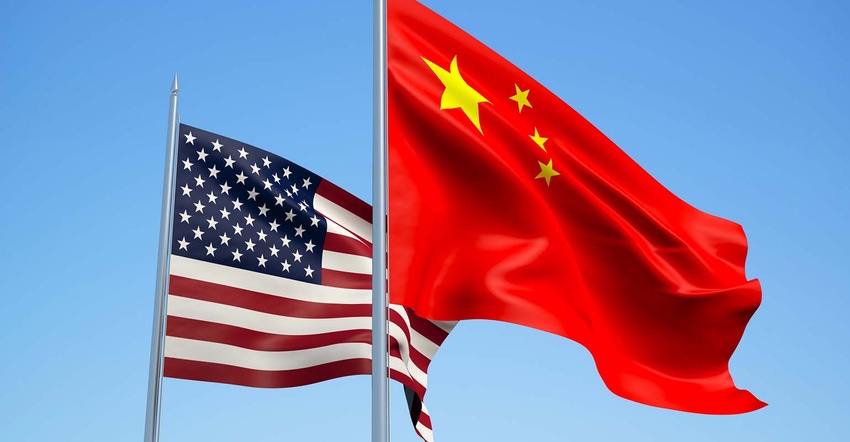
The latest round of trade talks between the U.S. and China achieved an agreement for "meaningful increases in United States agriculture and energy exports" as part of an effort to reduce America's trade deficit with the Asian nation, according to a joint statement issued Saturday by President Donald Trump and Chinese President Xi Jinping.
The U.S. will send a team to China to work out the details, the leaders said.
The discussion about agriculture came amid what the two nations characterized as "constructive consultations" on May 17 and 18 in Washington, D.C. The talks included U.S. Trade Secretary Steven Mnuchin, Commerce Secretary Wilbur Ross, U.S. Trade Representative Robert Lighthizer and Chinese State Counsel Vice Premier Liu He, according to the statement issued by the White House.
"To meet the growing needs of the Chinese people and the need for high-quality economic development, China will significantly increase purchases of United States goods and services," Trump and Xi said in the statement. "This will help support growth and employment in the United States."
Along with ag and energy, the two sides also discussed expanding trade of manufactured goods and services and agreed to "strengthen cooperation" in protecting intellectual property -- a major sticking point in the nations' dispute. China "will advance relevant amendments to its laws and regulations in this area," including its patent law, the leaders said.
While the statement was conciliatory, no details were offered. The leaders said both sides "agreed to continue to engage at high levels on these issues and to seek to resolve their economic and trade concerns in a proactive manner."
Any signs of progress on agricultural trade would come as a relief to a U.S. farm sector that's been rattled by the tariffs China imposed on American goods in April, in retaliation for Trump's announced tariffs on imported steel and aluminum. An April report by the group Farmers for Free Trade asserted that California commodities will be particularly hard-hit by the roughly $500 million in Chinese tariffs imposed on American agricultural goods.
Grower pessimism about trade weighed heavily as the Purdue/CME Group Ag Economy Barometer fell sharply for the second straight month in April, as producers surveyed were more negative about future agricultural export prospects. Both the Ag Economy Barometer and the Index of Future Expectations hit their lowest readings since March 2017.
At a stop in Knoxville, Tenn., last month, U.S. Agriculture Secretary Sonny Perdue reassured farmers that Trump will not leave them to take the brunt of Chinese tariffs. “The president will not let you be the only soldiers in the battle,” Perdue said.
In a sign that the Chinese government is seeking a conciliatory stance, on Friday it announced that it would end its anti-dumping and anti-subsidy investigation into imports of U.S. sorghum, citing “public interest," Bloomberg News reported.
In their statement Saturday, Trump and Xi said the two sides "agreed to encourage two-way investment and to strive to create a fair, level playing field for competition."
About the Author(s)
You May Also Like






